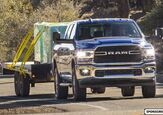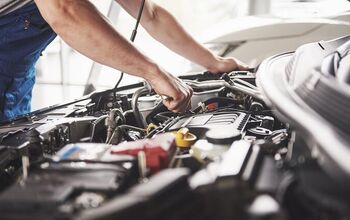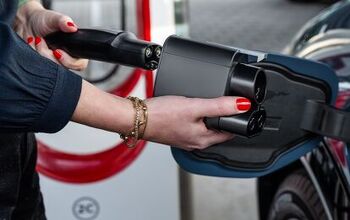Leaving Your Car for a While? Here's One Mistake You Should Never Make
If you’re planning a vacation or looking to get away and perhaps escape a frigid winter, there’s one thing you should never forget to do to your car before you leave. If you do happen to forget, it could result in a costly repair.
Disconnecting your battery from your car before you leave could potentially save you from having to replace it with a brand new one when you return. Even if you aren’t driving the vehicle, the electrical systems such as the on-board computer and clock can still slowly drain the battery, meaning your car might not start if left sitting for too long. This is especially the case in newer, more advanced cars, said Fred Rashidi, a Ford service manager.
“Some of these new cars have so many electronics and modules, the battery could get drained in a matter of weeks if left alone,” he said. Rashidi doubts it would make a difference on older cars, however.
ALSO SEE: How Far Can You Drive on Empty?
Should your battery drain completely, the average battery can cost between $40 to $100, plus installation, and some of the higher-end ones can even cost upwards of $200. You could jump-start it, but this will still leave your battery with a reduced life. Jump-starting also makes the alternator work harder because it is then powering the battery, which will reduce the life of the alternator as well.
Alternatively, you could also buy a trickle charger and leave it connected to the battery to slowly charge, but these can cost anywhere from around $40 to $150. Getting a trickle charger is actually much better than disconnecting your battery, though it isn’t the cheapest option.
Top 7 Best Trickle Chargers for Your Car’s Battery
“If someone is going away for a few months over the winter, they should definitely disconnect the battery. It’s the only way to prevent battery drain,” Rashidi said. “But the complication is, whenever you disconnect the cable from the battery, you have to make sure it’s secured somewhere so it’s not contacting the ground or any of the positives. I would recommend taking the negative battery post out, and wrapping something around the end so it doesn’t touch anything while you’re not there.”
If the cable end is touching the negative terminal or is even in proximity to it, it could create a spark and cause a fire. Rashidi said a quick and easy method would be to get some Ziploc bags and wrap them around the cable end so that it stays contained and doesn’t touch anything.
Rashidi also notes that disconnecting the car’s battery will reset all electronic systems and settings in your vehicle, so be prepared to reset the clock and any other systems. Familiarizing yourself with the settings is a good idea before disconnecting the battery. In some instances, more serious issues can arise when disconnecting or reconnecting the battery. Always discuss this with your dealer prior to disconnecting your battery.
ALSO SEE: Top 10 Best Portable Car Jump Starters
In order to disconnect the battery, all you have to do is remove the cable from the negative port. Do not let the negative and positive cable ends touch under any circumstances. If the cables do make contact or even get close, it could do a number of harmful things to your car, including frying your alternator, damage the cables, or worse, cause serious injury to yourself or others.
Check out more car jump starters here
Become an AutoGuide insider. Get the latest from the automotive world first by subscribing to our newsletter here.
More by Brooks Harvey
































Comments
Join the conversation
Can you confirm that it's wise to disconnect car battery and store the battery somewhere else if the car is not being used for 3 weeks and sitting outside during the winter? Would I still need to disconnect the battery if I put the car in a garage? Also, I want to make sure that disconnecting the battery would not cause any damage to the car computer system and settings. If it does, then why would we disconnect the battery?
Do I need to disconnect the battery on my 2010 Subaru Forester while Im away for three months